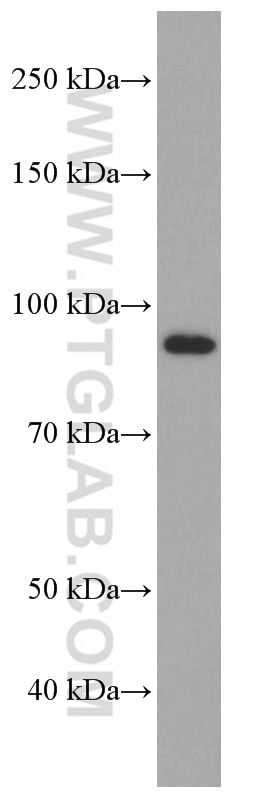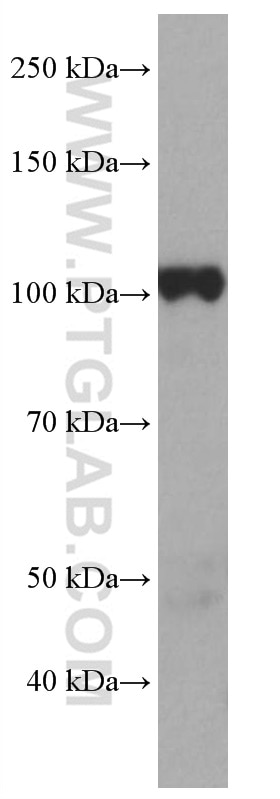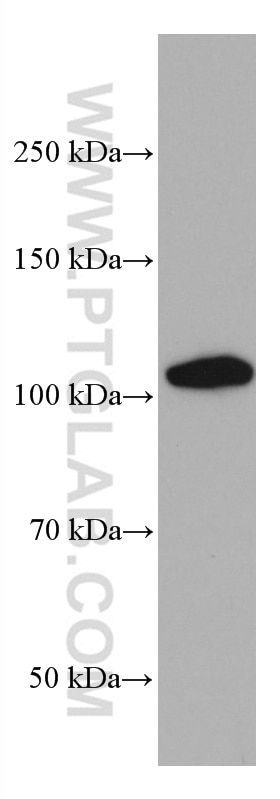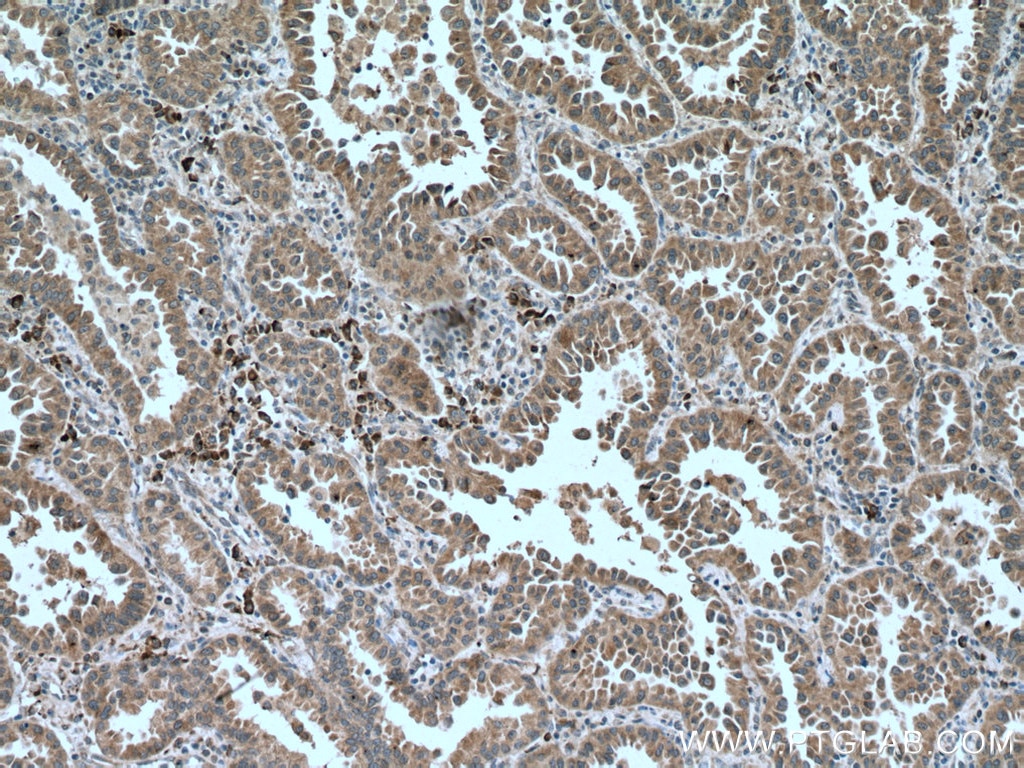Tested Applications
| Positive WB detected in | HEK-293 cells, rat lung tissue, pig lung tissue |
| Positive IHC detected in | human lung cancer tissue Note: suggested antigen retrieval with TE buffer pH 9.0; (*) Alternatively, antigen retrieval may be performed with citrate buffer pH 6.0 |
Recommended dilution
| Application | Dilution |
|---|---|
| Western Blot (WB) | WB : 1:500-1:3000 |
| Immunohistochemistry (IHC) | IHC : 1:250-1:1000 |
| It is recommended that this reagent should be titrated in each testing system to obtain optimal results. | |
| Sample-dependent, Check data in validation data gallery. | |
Published Applications
| WB | See 2 publications below |
Product Information
66934-1-Ig targets PHEX in WB, IHC, ELISA applications and shows reactivity with human, rat, pig samples.
| Tested Reactivity | human, rat, pig |
| Cited Reactivity | human, rat |
| Host / Isotype | Mouse / IgG1 |
| Class | Monoclonal |
| Type | Antibody |
| Immunogen |
CatNo: Ag20290 Product name: Recombinant human PHEX protein Source: e coli.-derived, PET28a Tag: 6*His Domain: 41-391 aa of BC105059 Sequence: SQGLLSLQAKQEYCLKPECIEAAAAILSKVNLSVDPCDNFFRFACDGWISNNPIPEDMPSYGVYPWLRHNVDLKLKELLEKSISRRRDTEAIQKAKILYSSCMNEKAIEKADAKPLLHILRHSPFRWPVLESNIGPEGVWSERKFSLLQTLATFRGQYSNSVFIRLYVSPDDKASNEHILKLDQATLSLAVREDYLDNSTEAKSYRDALYKFMVDTAVLLGANSSRAEHDMKSVLRLEIKIAEIMIPHENRTSEAMYNKMNISELSAMIPQFDWLGYIKKVIDTRLYPHLKDISPSENVVVRVPQYFKDLFRILGSERKKTIANYLVWRMVYSRIPNLSRRFQYRWLEFSR Predict reactive species |
| Full Name | phosphate regulating endopeptidase homolog, X-linked |
| Calculated Molecular Weight | 749 aa, 86 kDa |
| Observed Molecular Weight | 76-80 kDa, 95-100 kDa |
| GenBank Accession Number | BC105059 |
| Gene Symbol | PHEX |
| Gene ID (NCBI) | 5251 |
| RRID | AB_2882259 |
| Conjugate | Unconjugated |
| Form | Liquid |
| Purification Method | Protein G purification |
| UNIPROT ID | P78562 |
| Storage Buffer | PBS with 0.02% sodium azide and 50% glycerol, pH 7.3. |
| Storage Conditions | Store at -20°C. Stable for one year after shipment. Aliquoting is unnecessary for -20oC storage. 20ul sizes contain 0.1% BSA. |
Background Information
PHEX encodes a transmembrane endopeptidase that belongs to the type II integral membrane zinc-dependent endopeptidase family. The protein usually expressed in osteocytes, osteoblasts and odontoblasts, and it was thought to be involved in bone and dentin mineralization and renal phosphate reabsorption (PMID:28982589). Otherwise, studies showed that PHEX transcripts were identified in human osteosarcoma-derived cells and in differentiated mouse osteoblasts, but not in immature mouse preosteoblasts, indicating the stage-specific expression of the protein (PMID:9199999). Defects in PHEX are responsible for X-linked hypophosphatemic rickets (HYP) (PMID:22339660). Glycosylation of proteins results in higher molecular weight, and about 95-100 kDa band were reported (PMID:25128529; PMID:18728349).
Protocols
| Product Specific Protocols | |
|---|---|
| IHC protocol for PHEX antibody 66934-1-Ig | Download protocol |
| WB protocol for PHEX antibody 66934-1-Ig | Download protocol |
| Standard Protocols | |
|---|---|
| Click here to view our Standard Protocols |
Publications
| Species | Application | Title |
|---|---|---|
Acta Biomater Osteoinductivity and biomechanical assessment of a 3D printed demineralized bone matrix-ceramic composite in a rat spine fusion model. | ||
J Clin Endocrinol Metab Characterization of novel PHEX variants in X-linked hypophosphatemic rickets and genotype-PHEX activity correlation |










